3 Reasons Why Soft Grades Matter
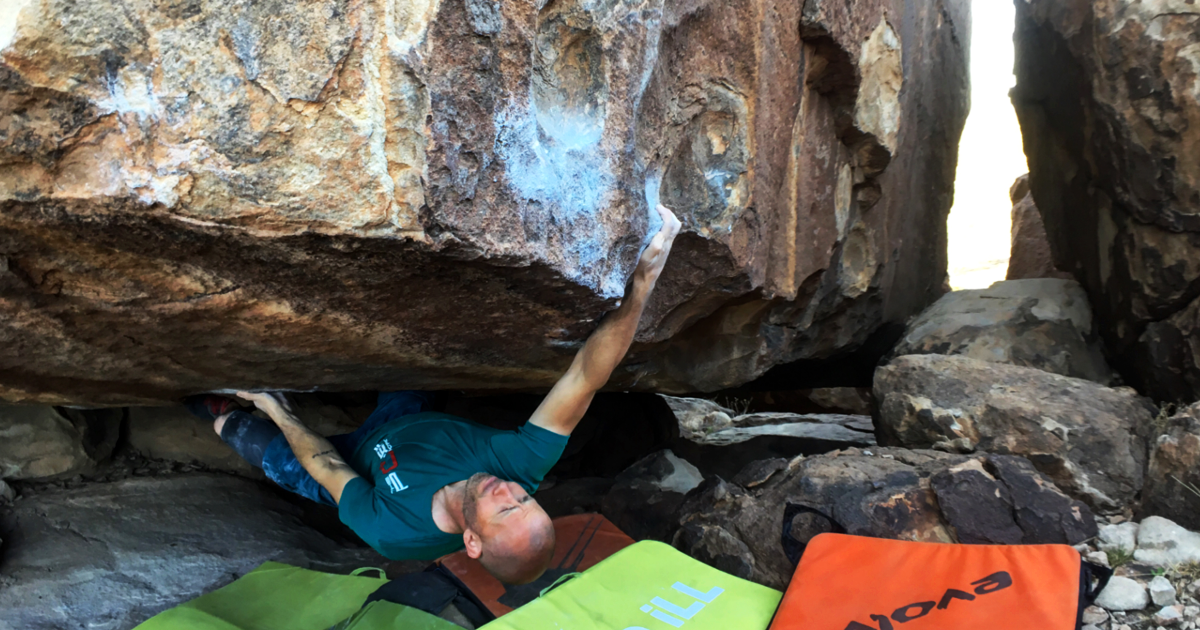
Kris climbing "Theater of the Absurd." (V10a+/b-) Hueco Tanks, Texas.
I'll come clean - I'm a defender of soft grades. In my opinion, they not only matter, but they are necessary for growth and balance. Does that mean I'm against stiff grades? Not at all. In fact, if we didn't have soft grades, wouldn't stiff grades just be your average everyday normal grades?
Honestly, I'm bothered a little every time that I hear someone disparage or choose not to do a certain climb because it's considered soft. I should just let the ridiculousness of it float away in the breeze, but it's a tough one for me to let go of for whatever reason. I feel the same defensiveness when Sierra Blair-Coyle is dissed, but that's a different story for another day.
Here is a fact for you:
When you do a rock climb and log it on your 8a, no matter what grade you give it, or what grade the guidebook gives it, the difficulty of said rock climb does not change. It's exactly the same amount of challenging for you no matter what number you, or anyone else, attaches to it.
So let's talk some of the reasons why soft grades should remain exactly what they are…
WANT MORE? READ THE REST IN: The Hard Truth: Simple Ways to Become a Better Climber
Skaters do one important thing much better than climbers: they chase mastery instead of success.
It's exactly the same amount of challenging for you no matter what number anyone attaches to it.
How often do you give 100%? REALLY give 100%? I make my living coaching climbers, and I seldom see a climber try their hardest. Myself included.
While in the gym, for the most part, boulderers are closer than sport climbers to training the correct way.
It's easy to get discouraged by how quickly the pros seem to put down the hardest projects.
I get it. Talking is easier than doing. What it isn't, however, is nearly as satisfying.
Nate snapped the banana in half. Clean break, right through the middle. Like a ninja.
You can almost always find a reason to continue training the short-sighted way.
There is NO single workout that any group of people can follow to get the optimum results for each of them.
Newbs, rejoice! You get a whole post. A short one, but your very own set of training wheels.
So how do you get better faster? There's a simple answer. You don't.
After much deliberation over a list of about 25, I've decided on the 5 ways I see experienced climbers derail their progression.
I hear them coming from every corner of the gym… excuses.
The fact is, you WILL NEVER get to within earshot of your potential if you don't have a complete skill set.
Our egos are ruthless. I've seen climbers stop a workout early because they didn't want to "look bad".
Fact is, seeing the "chains" as the sole representation of success is holding you back.
A better way to view grades and progression?
Which is better – building a grade pyramid or a tower – and how might one or the other impact your future climbing?
Discussion around grades can be so polarizing that many of us avoid the topic.
In an ideal world, grades would be objective and we’d have some universal formula for how they’re decided. But we don't live in an ideal world.
Or any grade, for that matter. Boulder or sport.
A climber since 1994, Kris was a traddie for 12 years before he discovered the gymnastic movement inherent in sport climbing and bouldering. Through dedicated training and practice, he eventually built to ascents of 5.14 and V11.
Kris started Power Company Climbing in 2006 as a place to share training info with his friends, and still specializes in working with full time "regular" folks. He's always available for coaching sessions and training workshops.






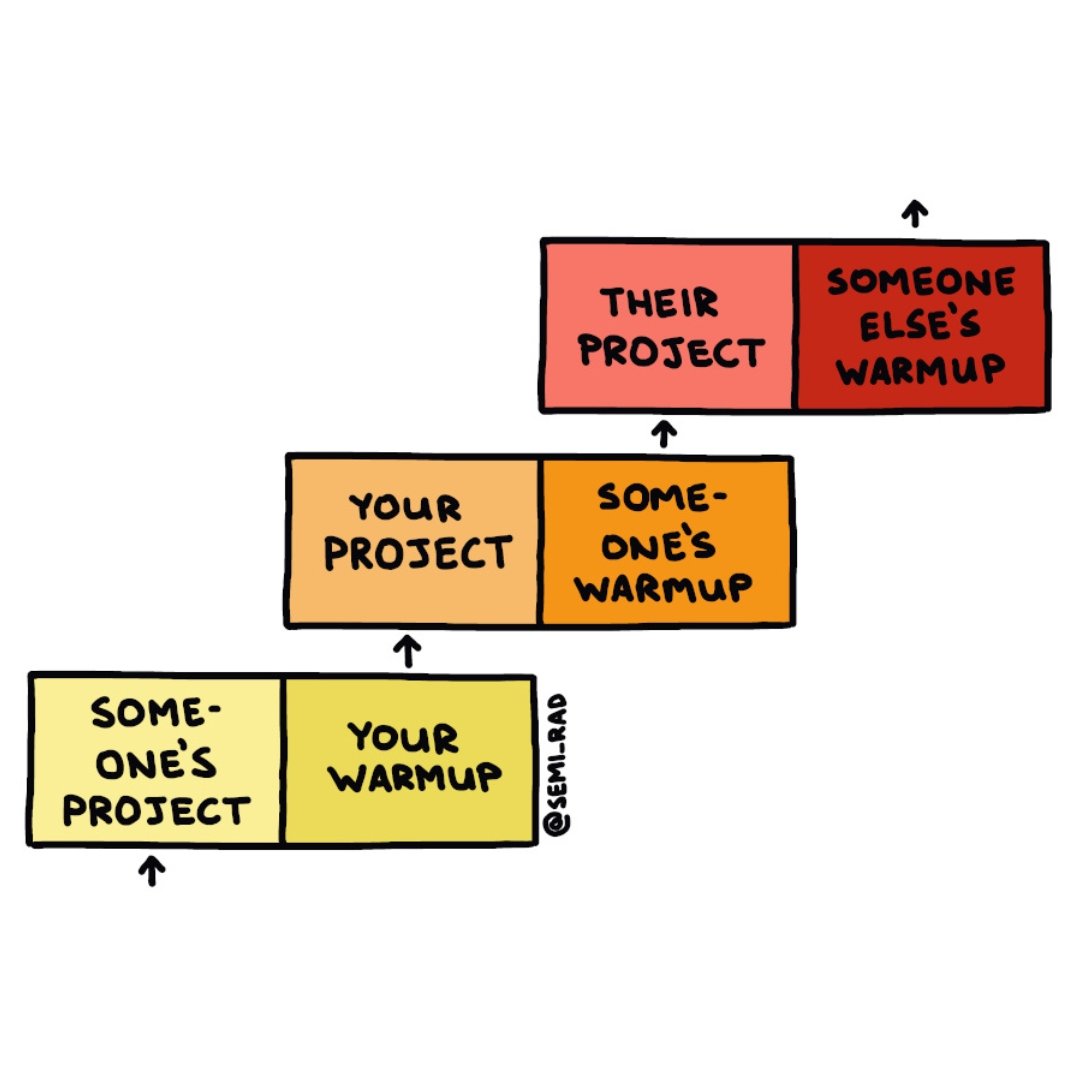



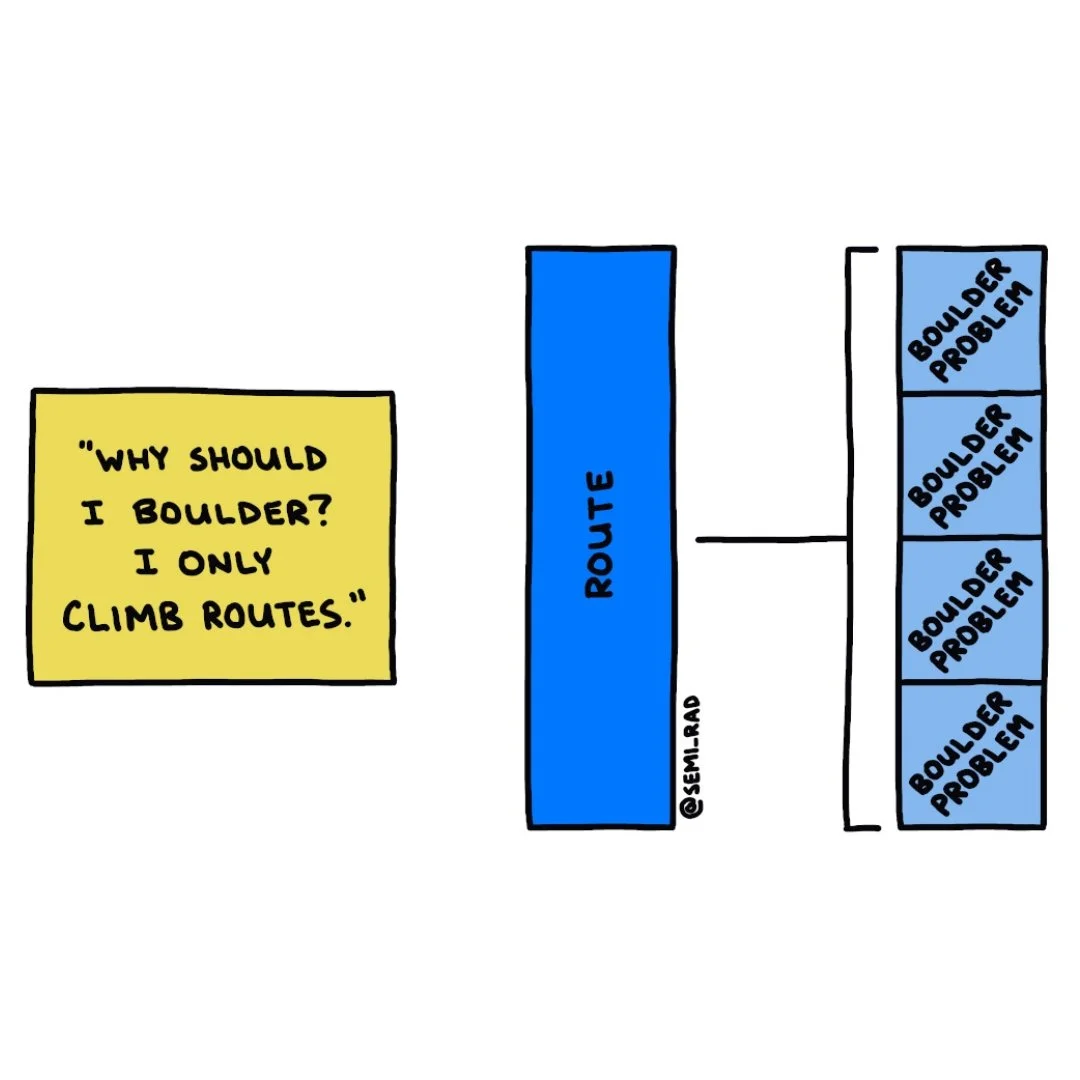







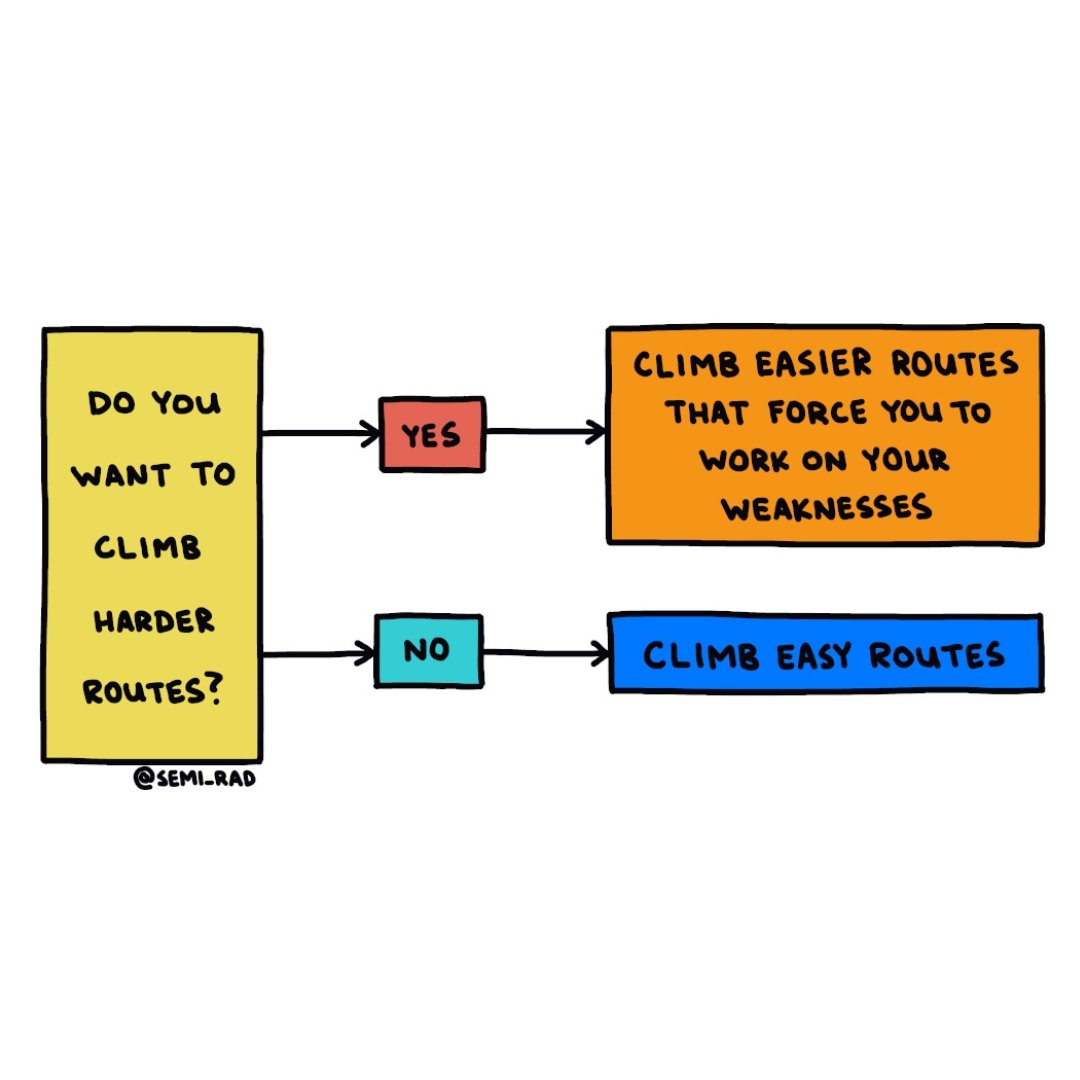





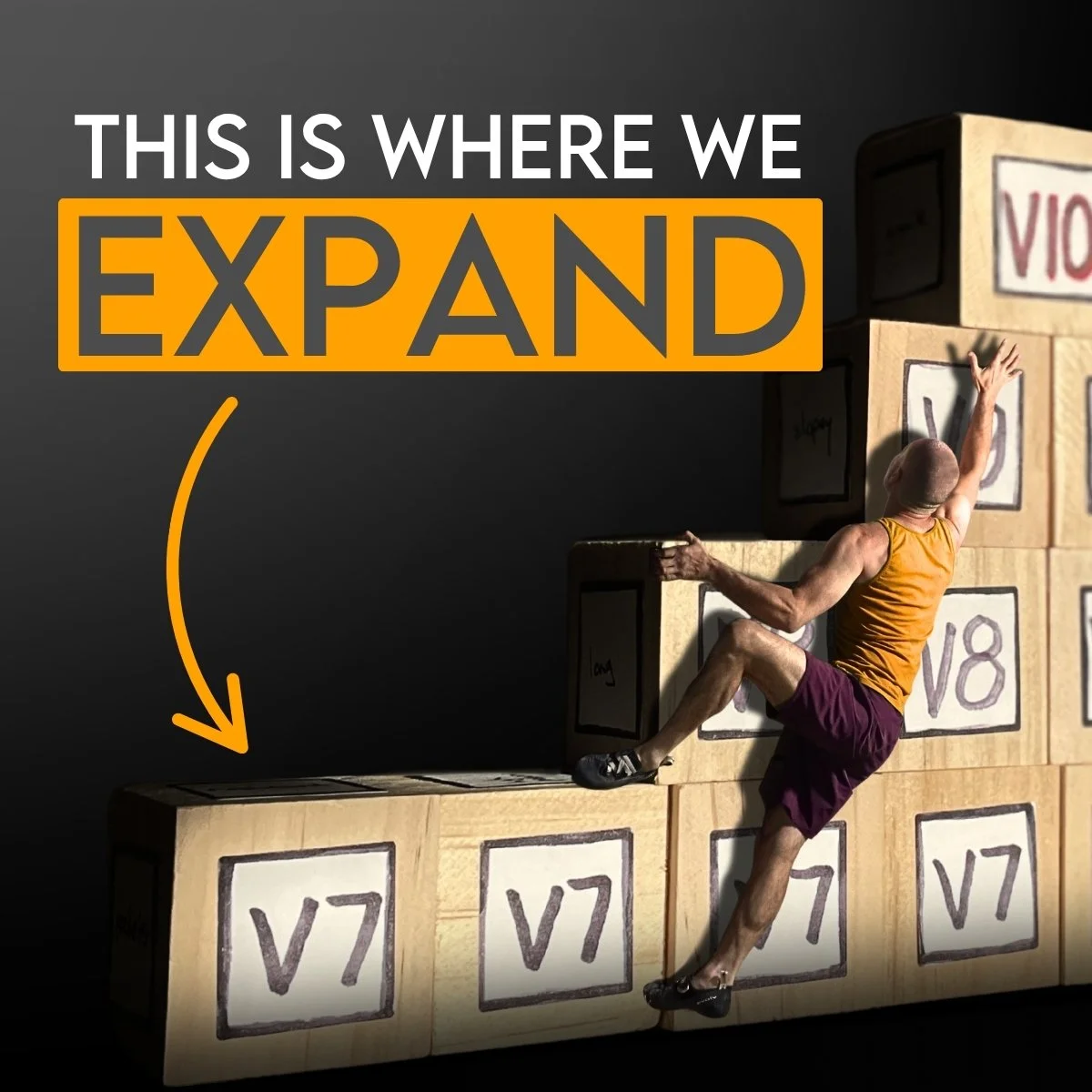


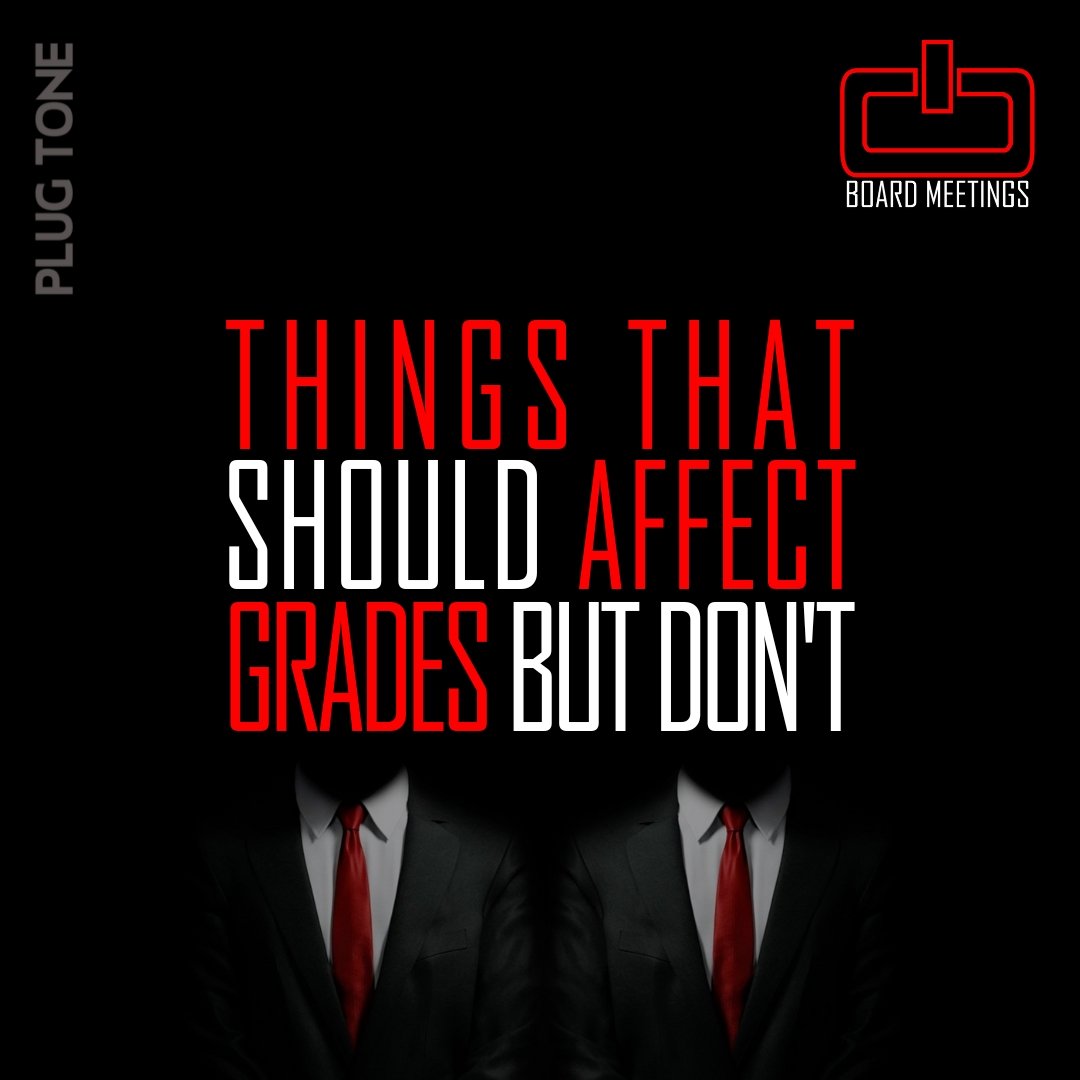

Redpointing is an ultimate success built on the backs of many failures.